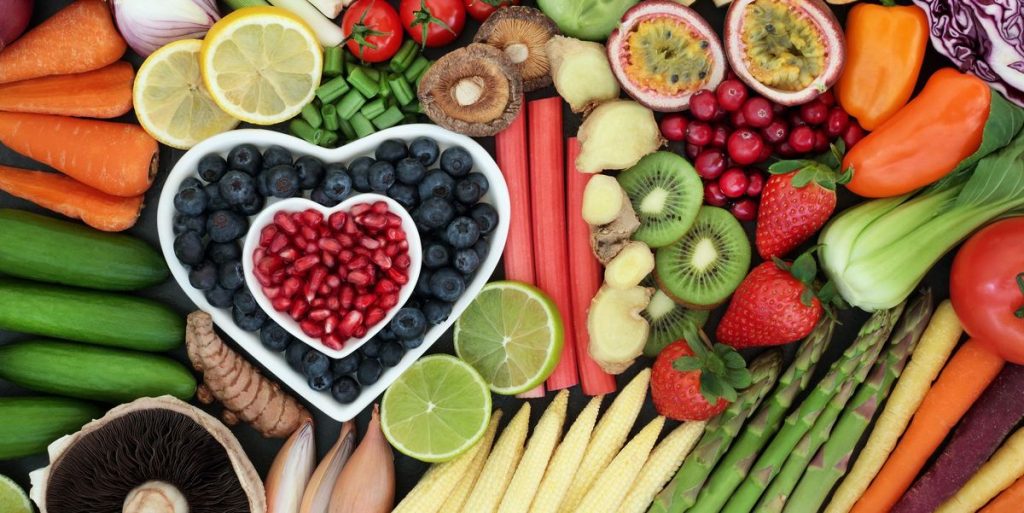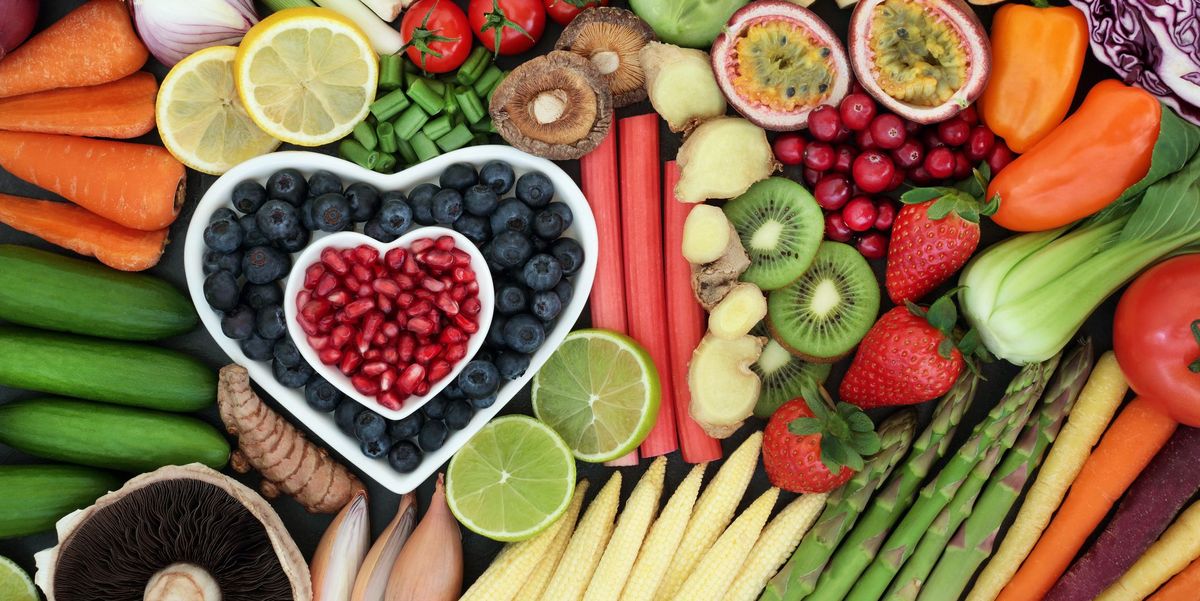
Protect Your Cardiovascular System With 11 Types of Food
One of the greatest tragedies about heart disease is that it is most often avoidable and preventable.
By Jingduan Yang 1/24/2024
Cardiovascular disease (CVD) affects the normal function of the heart and blood vessels and increases the risk of hypertension, heart disease, and stroke. Long-term studies show that controlling high blood pressure, diabetes, and high cholesterol by adopting a healthy lifestyle and diet may prevent about 80 percent of CVD.
CVD is the leading cause of death worldwide. However, an increasing amount of research has found that improving one’s diet is one of the most effective ways to reduce CVD risk. Therefore, we can protect our cardiovascular system by choosing foods that help to lower blood pressure, reduce inflammation, and reduce peroxidative stress that damages blood vessels.
11 Foods That Soften Blood Vessels
Atherosclerosis is one of the main causes of cardiovascular disease. Build-up of plaque on the walls of the arteries hinders the flow of blood, increasing the burden on the heart. Maintaining the elasticity and smoothness of blood vessels is key to preventing CVD. Choosing foods that are heart and blood vessel friendly is one key to a healthy heart.
1. Vegetables
Green leafy vegetables such as spinach and kale are rich in potassium, which can balance the sodium in the body and reduce blood pressure. They contain folic acid and vitamin B3, which help to smooth the cholesterol deposits from the artery walls. Folic acid can participate in the methylation cycle, reduce homocysteine levels, and reduce myocardial ischemia.
Beets contain nitrates, which can be converted into nitric oxide. Nitric oxide can relax and dilate blood vessels and promote blood circulation. Nutrients in beets can also fight inflammation and protect vascular walls.
Garlic and onions contain sulfur compounds that relax and dilate blood vessels, increase nitric oxide production, and improve blood circulation.
2. Fruits
Fruits such as blueberries, blackberries, strawberries, cherries, raspberries, and pomegranates are rich in anthocyanins. This powerful antioxidant can reduce the damage of free radicals to blood vessel walls, and relax and dilate blood vessels, thereby improving blood circulation, and at the same time reduce arterial resistance and lower blood pressure. Red dates also offer similar effects. However, be aware that pomegranates and red dates contain high sugar content and people who already have diabetes or insulin resistance should take them only in moderation.
Bananas are rich in potassium, which can balance the sodium in the body, reduce blood volume, and lower blood pressure. It’s recommended to eat green bananas, which are nutritious and contain less sugar.
Grapefruit and tomatoes are rich in lycopene, which has anti-inflammatory and antioxidant effects.
3. Nuts and seeds
Nuts and seeds such as almonds, walnuts, flaxseeds, and chia seeds are rich in healthy fats and soluble fiber, as well as potassium and magnesium. They have antioxidant effects and can help to maintain intestinal health, avoid the risk of intestinal permeability (leakage gut), reduce inflammation, and protect blood vessels—reducing the chance of blood clotting, relaxing and dilating blood vessels, balancing electrolytes, and lowering blood pressure.
4. Animal proteins
Wild fatty fish such as salmon and tuna are rich in polyunsaturated fatty acids omega-3. This anti-inflammatory and antioxidant fatty acid can reduce blood coagulation and dilate blood vessels. Be careful to choose wild deep-sea fatty fish to avoid the effects of various toxins or other chemicals. Vegetarians can supplement omega-3 through flaxseed oil, walnuts, or other nuts.
Turkey and chicken are low in fat and high in protein. Eggs are also an excellent source of protein. The B12 in animal protein can lower homocysteine levels, thereby reducing the risk of heart disease. It is recommended to choose naturally raised poultry and their eggs in order to prevent possible food contamination.
5. Plant proteins
Broad beans, lentils, peas, and other beans are rich in soluble fiber, which can reduce the intestinal absorption of cholesterol and reduce the amount of low-density lipoprotein. They are also rich in potassium and magnesium, which relax and dilate blood vessels and balance electrolytes.
Natto, a fermented soybean food, contains nattokinase, which research indicates can dissolve blood clots and soften and dilate blood vessels. Nattokinase has been shown to be effective in preventing and treating cardiovascular diseases, as well as helping to reduce the risk of CVD. Nattokinase is also found in fermented soy foods such as fermented bean curd and tempeh.
6. Staple foods
Oats and black rice contain polyphenols, which are good for your heart. Oats are rich in soluble fiber, especially beta-glucan, which can reduce intestinal absorption of cholesterol, reduce the content of low-density lipoprotein, and reduce the risk of atherosclerosis. Be careful to choose only natural oats because processed oats are converted into sugar very quickly, which can cause a rapid rise in blood sugar.
7. Edible oil
Olive oil contains mono-chain unsaturated fatty acids and antioxidants, which can reduce inflammatory reactions, protect blood vessels from free radical damage, promote blood circulation, and help to lower blood pressure.
8. Tea
Green tea contains catechins, which can fight inflammation, reduce oxidative stress, promote the production of nitric oxide, and lower blood pressure.
9. Chocolate
Dark chocolate not only contains polyphenols, but also contains many flavonoid compounds, which can promote the production of nitric oxide, improve blood vessels, and lower blood pressure. However, be aware of the sugar content and calories in dark chocolate and avoid excessive intake.
10. Vinegar
Vinegar contains acetic acid, which has anti-inflammatory effects, can reduce the release of inflammatory factors, and protects blood vessel walls.
11. Yogurt
Yogurt contains probiotics, which also have anti-inflammatory effects and can reduce the release of inflammatory factors and protect blood vessel walls.
Foods That Increase CVD Risk
While choosing foods that are beneficial to your cardiovascular health, you should also try to avoid foods that are harmful to you. These foods usually contain too much salt, sugar, oil, cholesterol, etc., which can increase blood pressure, blood sugar, and blood lipids, lead to hardening and blockage of blood vessels, and increase the risk of cardiovascular disease.
In 2019, a systematic analysis in The Lancet identified high sodium intake, low whole grain intake, and low fruit intake as major dietary risk factors for death and disability-adjusted life years globally and in many countries. If there is too much sodium in the body, it will cause water retention and increase blood volume. Potassium can excrete sodium by promoting urine, so foods rich in potassium are important.
A Healthy Eating Plan
A study published in the Journal of the American College of Cardiology (JACC) pointed out that reducing excess calorie intake and adjusting dietary structure can prevent many primary and secondary cardiovascular diseases. Current guidelines recommend a diet high in fruits, vegetables, whole grains, nuts, and legumes, moderate intake of low-fat dairy products and seafood, and low intake of processed meats, sugary drinks, refined grains, and salt.
A large prospective cohort study that included three follow-up studies for up to 32 years showed that adhering to various healthy dietary regimes was consistently associated with a reduced risk of cardiovascular disease. These findings support the recommendations of the 2015–2020 Dietary Guidelines for Americans that healthy eating patterns can be chosen based on an individual’s dietary traditions and preferences.
We can make a healthy diet plan for ourselves and our families based on the actual situation. Try to choose foods that can soften blood vessels and lower blood pressure, and adjust your eating habits to protect cardiovascular health and effectively prevent the occurrence of cardiovascular diseases.

